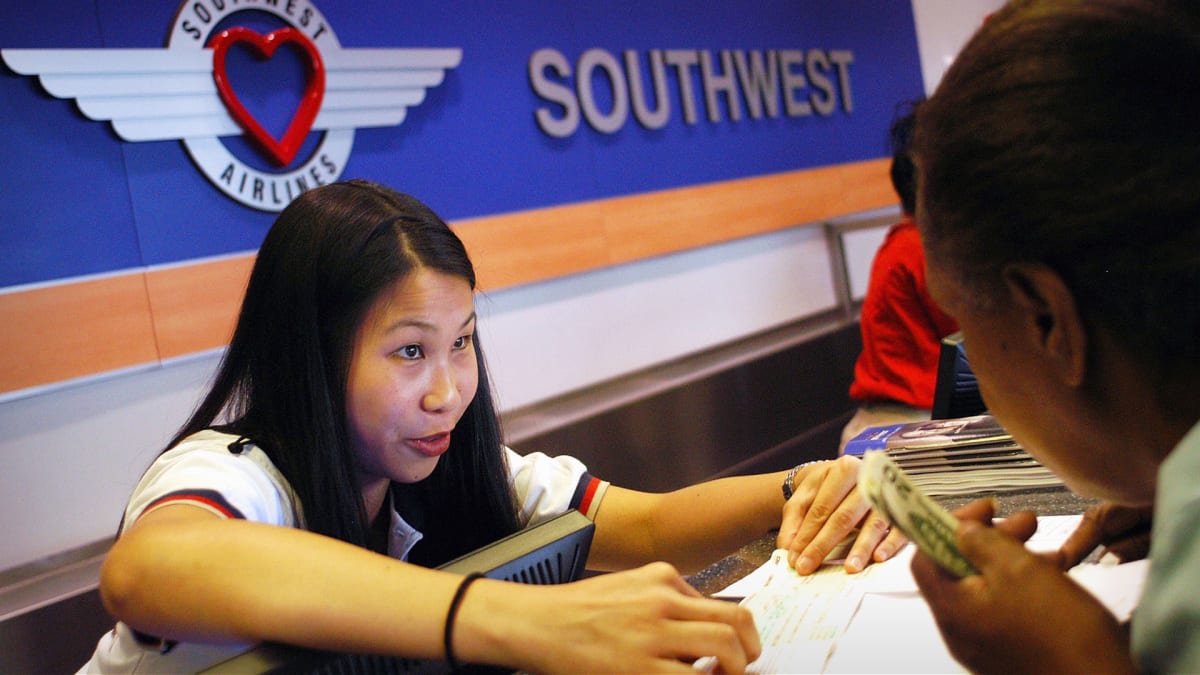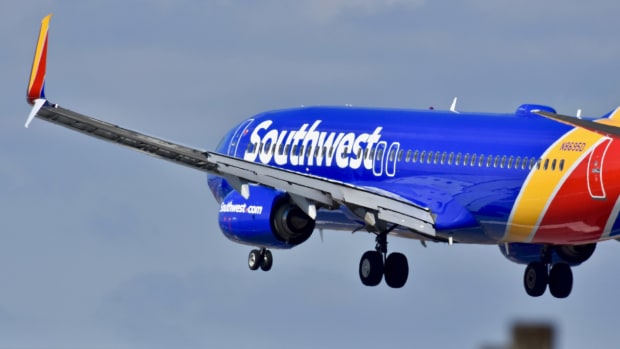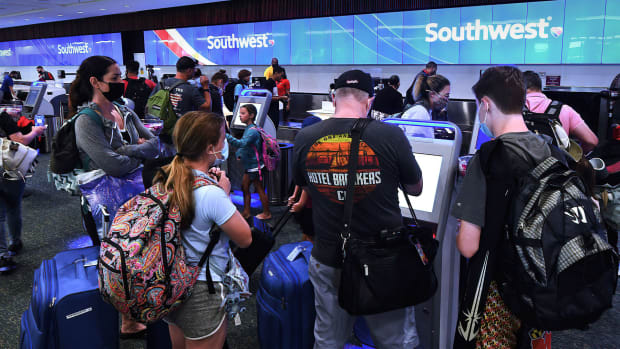
Southwest's holiday meltdown, in which more than more than 16,700 flights were cancelled or delayed, was frustrating and harrowing for customers, and embarrassing for the airline.
It was also completely predictable.
Many aviation experts, including Dan Gellert, Chief Operating Officer at the online travel agency Skiplagged, saw a breakdown like this coming. If anything, it was really only a matter of time before Southwest’s (LUV) bad habits caught up with them.
When America was hit by massive winter storms at the end of the year, Southwest crumbled while most airlines were able to, more or less, keep it together. The reason for this, employees and critics allege, is that Southwest's new management has been reluctant to spend enough to recruit new employees to replace the ones that retired or took a buyout during the pandemic, and its also been unwilling to update its years old (at best) scheduling software.
The result of these decisions were thousands of miserable and stranded travelers many of whom, unfortunately, took out their justified frustrations out on customer service representatives.
In the final week of December, social media was filled with stories of Southwest customer service representatives getting screamed at and insulted, and ever since flying resumed following eased pandemic restrictions, not a month goes by without a story of an airline employee getting attacked by belligerent customers.

Image source: Shutterstock
Critics have alleged that the actions of Southwest’s executives have forced employees to accept the public’s displeasure for the airline’s blunders, while management is largely shielded from the worst of traveler's ire.
"The biggest lesson learned is that you need to continually be investing for the future," notes Gellert. "Southwest is notorious for always being very cost focused so that they can maximize the returns for Wall Street," he says.
"This resulted in their relying on a decades old scheduling software system. At the end of the day, this was going to break at some point, with travelers bearing the impact. If Southwest wants to ever get back to its 'consumer friendly' image, it will have to change its approach to how it thinks about investments in the future, recognizing that investing in robust technology and systems is a core component to having a 'consumer friendly' brand."
We talked with Gellert to get an insight into just what went wrong, and what Southwest needs to do to right the ship.
Why do you think Southwest's operating system was so out of date? Is there a complicated reason, or is it as simple as the company not wanting to pay for an upgrade?
Gellert: The simplest answer tends to be the most accurate and that is the case here in my opinion.
It was well known in the industry and for years the unions had been asking Southwest to update its scheduling software, but to no avail. Instead, Southwest executives were focused on how they could return money to their shareholders, which they announced last month that they would do in the form of a $425 million dividend to be paid at the end of this month.
Companies need to be held more accountable. Skiplagged is dedicated to being transparent and empowering the consumer to choose from all available travel options–even the ones airlines don’t want them to see.
Just how predictable was this meltdown? Could it have been fixed?
Gellert: For people in the industry, this was a “when” not “if." If you had explained to a random person how Southwest’s scheduling software worked, and all of the manual intervention that was needed at various points, it would have been clear that this system was going to experience a major meltdown at some point. It absolutely could have and should have been fixed, but that would have required investment from Southwest and its executives.

Paul Hennessy/SOPA Images/LightRocket via Getty Images
So it seems like the CEOs didn't make the changes necessary, and a lot of people were left stranded or delayed. But would it be fair to say that customers took their anger out on airline attendants, front-desk people and the like, and not the people responsible for the mess?
Gellert: While I am sure there are plenty of instances of irate customers behaving poorly, the reality is that it has been impossible for customers to take their anger out at the executives that were responsible for creating this chaos.
This is another example of customers bearing the brunt of the airline executives acting in their own self interests, as well as the interests of their shareholders. I certainly believe it’s reasonable for customers to expect that various Southwest executives should be held responsible in some way.
If customer service reps are being put in an unfair situation and made to accept the public's anger and abuse, what needs to be done to rectify this situation?
Gellert: Similarly to Southwest customers, the Southwest customer service reps were put in a terrible position by their executive team. The blame is on the executives and the airline industry. Southwest can not preach having a heart for service and not prepare their customer service representatives in the best way possible for these types of situations. Consumers can tell when companies put the consumer first based on how they respond to crises like this.
If working as a customer service rep for an airline begins to develop a reputation as "tough job no one wants," won't that eventually spell trouble for the industry? Isn't it in Southwest and everyone else's best interests to fix this?
Gellert: Executives leading the airline industry need to start treating their customers and employees as their primary audience, and not Wall Street. For too long (pre and post pandemic) airline executives have focused on pleasing Wall Street and without a doubt that creates a situation where they are placing the interests of Wall Street ahead of their employees and customers. Until that changes, situations like these will continue to appear.







